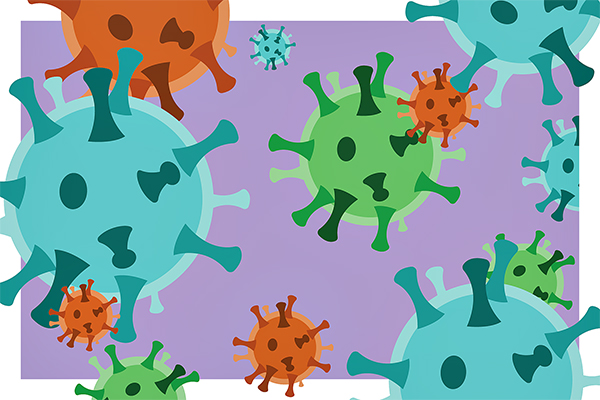UT-Austin, New York researchers find hepatitis C drugs may improve existing COVID-19 treatments
May 6, 2021
Drugs approved to treat hepatitis C could boost the efficacy of the only antiviral approved to combat COVID-19 by as much as tenfold when administered together, according to a paper co-authored by a UT researcher.
Currently, the U.S. Food and Drug Administration has only approved one antiviral for combatting COVID-19 named remdesivir, said Robert Krug, professor emeritus of molecular biosciences at UT. Krug worked with scientists from labs at Rensselaer Polytechnic Institute and Icahn School of Medicine at Mount Sinai to find that at least four hepatitis C virus drugs can act alongside and enhance remdesivir.
Hepatitis C virus causes an infection that leads to inflammation of the liver, according to the Centers for Disease Control and Prevention. The Hepatitis C antivirals combat the infection by targeting the part of the virus that allows it to multiply, Krug said.
Khushboo Bafna, a postdoctoral fellow at Rensselaer Polytechnic Institute, said the hepatitis C drugs work against COVID-19 similarly by inhibiting the coronavirus’s ability to replicate.
“You can reduce the dose (of remdesivir) and get the same amount of effect,” Bafna said. “Or if you have the same dose that we are giving now, you could combine it with the hepatitis C virus drug, and you would see that the drug is working 10 times more.”
Krug said one of remdesivir’s limitations is that doctors must inject it into the patients, so they can only use it on hospitalized people.
Krug said he hopes researchers will develop a remdesivir-like drug that can be taken orally, which could possibly be paired with these hepatitis C drugs to inhibit the virus before patients must be hospitalized.
“We could make sure or help to make sure that patients who get COVID don’t end up in the hospital,” Krug said.
Kris White, an assistant professor of microbiology at Icahn School of Medicine at Mount Sinai, said treatments combining multiple drugs are especially important for combatting virus variants.
“You would need a simultaneous resistance to both drugs in order for (the virus) to escape from the drug,” White said.
Krug said that in addition to vaccines, effective antivirals will be crucial for overcoming the pandemic. Antivirals can save lives if someone is unvaccinated or current vaccines do not protect against COVID-19 variants, Krug said.
“The whole idea is that you need both arms,” Krug said. “You need the vaccines, which are critical, but you also need antivirals because there’s going to be many examples where you need to stop the virus for people who really don’t have antibodies against it.”



